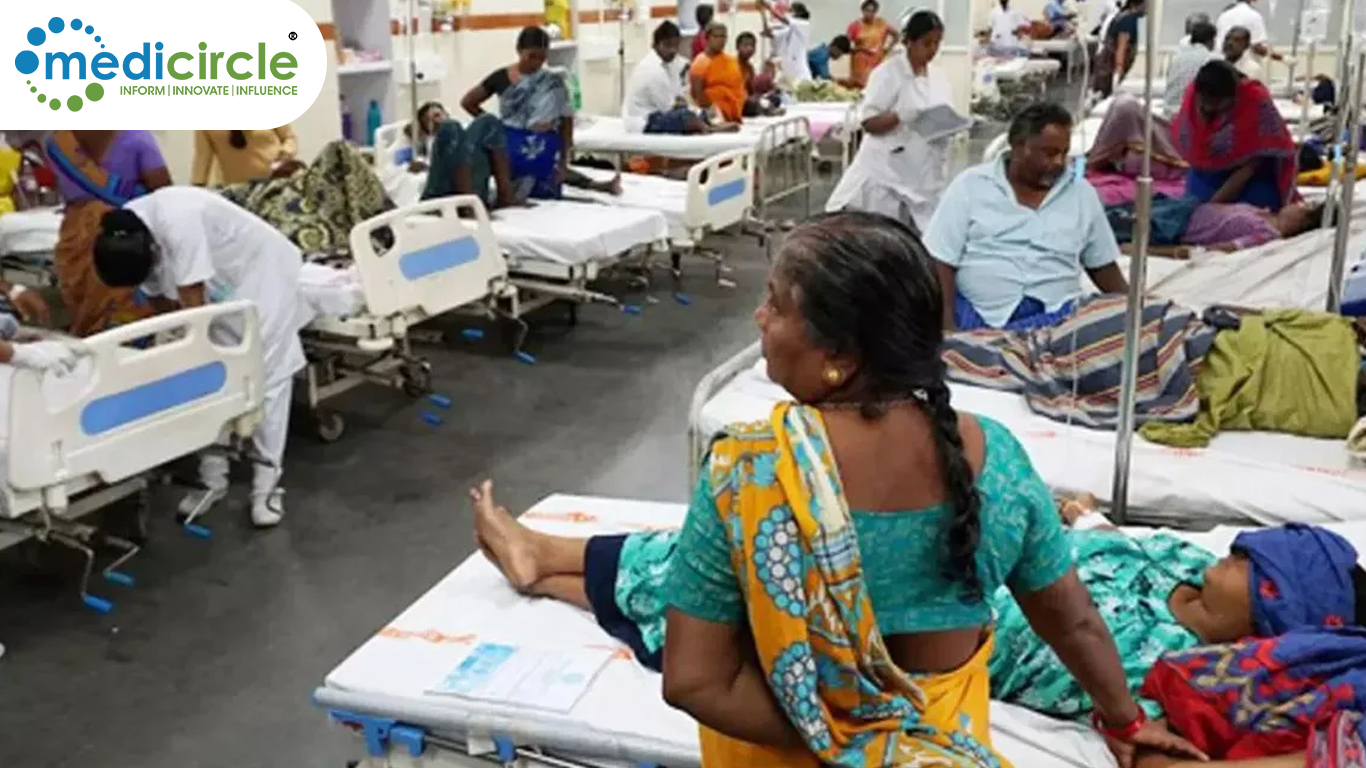In a concerning development, at least two people have died and 28 others have fallen ill due to a suspected diarrhoea outbreak in Adapada village, located in Odisha’s Ganjam district. Health officials are working tirelessly to manage the situation and provide necessary treatment to the affected individuals. Let’s get into a detailed overview of the outbreak, the response from medical authorities, and preventive measures to avoid such incidents in the future.
The suspected diarrhoea outbreak has caused significant alarm in Adapada village, Sanakhemundi block of Ganjam district. The outbreak, which occurred over the past few days, has led to the deaths of two elderly individuals, Kenchu Nayak and Kanchan Nayak, both above 70 years of age. Alongside diarrhoeal infection, these individuals were also suffering from other pre-existing health conditions.
In response to the outbreak, a medical team from Berhampur was dispatched to Adapada village on Thursday to provide immediate medical assistance. Out of the 28 individuals who fell ill, 20 are currently receiving treatment at the Adapada community health centre. One critically ill patient has been referred to MKCG Medical College and Hospital in Berhampur for advanced care, according to Sarojini Devi, Additional District Medical Officer (ADMO) of Ganjam. The remaining patients are under medical observation at their homes.
Preliminary investigations suggest that the consumption of contaminated water from wells could be the primary cause of the diarrhoea outbreak. The area had experienced rainfall in the previous week, which may have led to the contamination of water sources. The exact cause is still under investigation, and health officials are working to identify and mitigate the source of contamination to prevent further cases.
The state government and health department have taken swift action to address the outbreak. Key measures include:
1. Emergency Medical Teams: Immediate deployment of medical teams to provide treatment and monitor the health status of affected individuals.
2. Water Quality Testing: Testing of water sources in the affected area to identify potential contamination and take corrective measures.
3. Public Awareness Campaigns: Educating the local population about the importance of drinking clean and safe water, proper hygiene practices, and early symptoms of diarrhoea.
4. Sanitation Efforts: Enhancing sanitation and hygiene measures in the village to prevent the spread of infection.
Clean water and proper sanitation are critical to preventing waterborne diseases like diarrhoea. Contaminated water can carry harmful pathogens that cause severe health issues, especially in vulnerable populations such as the elderly and children. It is crucial for communities to ensure safe drinking water and maintain good sanitation practices to protect public health.
To prevent diarrhoea outbreaks and other waterborne diseases, communities should adopt the following measures:
1. Boiling Water: Boiling water before consumption can kill harmful bacteria and viruses, making it safe to drink.
2. Proper Sanitation: Using clean toilets and disposing of waste properly can prevent contamination of water sources.
3. Hand Hygiene: Regular hand washing with soap, especially before eating and after using the toilet, can reduce the spread of infections.
4. Safe Food Handling: Ensuring that food is cooked thoroughly and stored properly can prevent foodborne illnesses.
5. Community Health Education: Local health departments should conduct regular awareness campaigns to educate the public on hygiene practices and disease prevention.
Healthcare providers play a crucial role in managing diarrhoea outbreaks and preventing further cases. Their responsibilities include:
1. Early Detection and Treatment: Prompt identification and treatment of diarrhoea cases can prevent complications and reduce the spread of infection.
2. Health Education: Educating patients and communities about the importance of clean water, sanitation, and hygiene practices.
3. Monitoring and Reporting: Keeping track of diarrhoea cases and reporting outbreaks to health authorities for timely intervention.
4. Vaccination: Promoting vaccination for preventable diseases such as cholera, which can cause severe diarrhoea.
The suspected diarrhoea outbreak in Odisha’s Ganjam district highlights the importance of clean water, proper sanitation, and timely medical intervention in preventing and managing waterborne diseases. The swift response from health authorities has been crucial in providing treatment to affected individuals and preventing further cases. Moving forward, it is essential to continue efforts to improve water quality, sanitation, and public health education to safeguard communities from such outbreaks.
By adopting preventive measures and ensuring access to clean water, we can protect public health and prevent the spread of diarrhoeal diseases. The lessons learned from this outbreak should guide future actions to enhance the resilience of communities and healthcare systems in the face of similar challenges.

 The diarrhoea outbreak in Odisha’s Ganjam district highlights the importance of clean water, proper sanitation, and timely medical intervention in preventing and managing waterborne diseases.
The diarrhoea outbreak in Odisha’s Ganjam district highlights the importance of clean water, proper sanitation, and timely medical intervention in preventing and managing waterborne diseases.










.jpeg)



















.jpg)
.jpeg)